Meet Canary7
The Ultimate Guide to 3PL eCommerce Integrations
Partner with Canary7 to take your operations to the next level with world class eCommerce integrations!
Partner with Canary7 to take your operations to the next level with world class eCommerce integrations!
Partner with Canary7 to take your operations to the next level with world class eCommerce integrations!
Many businesses operating in the 21st century would agree that eCommerce is that one magical area where just a little effort can lead to tons of success. For third party logistics providers that deal with eCommerce businesses struggling to perfect their fulfilment processes, this is especially true. If you can seamlessly take control of eCommerce activity and ensure that it is well-aligned with the ultimate goals of your client, you will have made it as a 3PL.
However, like most things are, that is easier said than done. In actuality, navigating the eCommerce space especially in terms of logistics can be hard, and 3PLs may often find it challenging to streamline the fulfilment journey for their clients with eCommerce sales channels.
But again – nothing is impossible; especially in the era of software and technology, there is a solution to every problem. When it comes to dominating the world of eCommerce, 3PLs can benefit from a marvel called 3PL eCommerce integrations. 3PL integrations can help you improve your eCommerce experience as a 3PL while bringing a plethora of other benefits to the table for your business.
If you have never heard of 3PL eCommerce integrations before, you don’t need to worry! We have compiled the ultimate guide to all things 3PL eCommerce integrations, and just one read through this will help you intensify your knowledge in the area, as well as subsequently make decisions that actually contribute towards the overall success of your business.
So, what are you waiting for? Dive right in and find out what 3PL eCommerce integrations are and how they can help enhance your logistics journey to a considerable extent.
Contents:
In order to understand the role of 3PL eCommerce integrations, it is important that we look at the eCommerce industry as a whole. Although eCommerce has been an integral part of business operations for a very long time now, it has now put on a completely different role and is arguably one of the most lucrative areas of sales for business. The reasons behind this are far-fetched, and this section will help you understand why optimising your business in accordance with the needs of the eCommerce industry is absolutely crucial today.
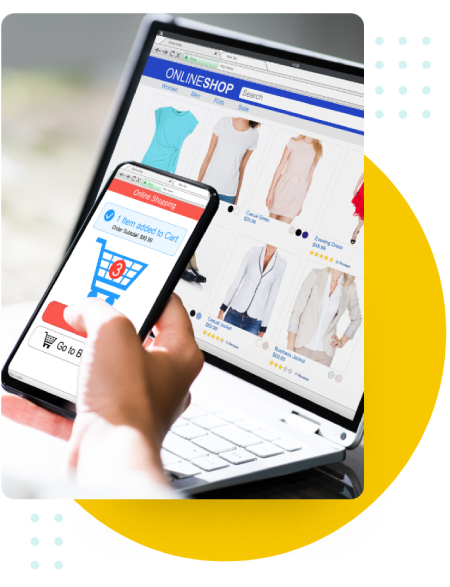
Electronic commerce, more commonly known as eCommerce, is essentially the term used to describe the process of trading goods and services over the Internet. It is a broad area that covers many different market segments and can be executed through a range of different devices including smartphones, tablets, and computers.
Today, you can buy and sell just about anything on the internet. Everything from books to music right down to fulfilment services can be offered on the internet, and subsequently bought by people who are interested in it. eCommerce now also covers things such as stock investing and online banking, and hence is considered to be an all-pervasive form of technology which can be used to do hundreds of tasks at the speed of lightning.
For many businesses, eCommerce stores have replaced traditional, brick-and-mortar shopping experiences while for others, eCommerce is a useful extra addition to the brick-and-mortar buying and selling. Either way, eCommerce is a core area that organisations aim to focus on today.
There are many different segments in the market that can benefit from eCommerce. These segments include business-to-business, business-to-consumer, consumer-to-consumer, and consumer-to-business. No matter which market segment you belong to, eCommerce can be moulded in accordance with your needs and hence, is an important element to keep in consideration.
At this point, we have probably bored you by repeating that eCommerce is an important part of business operations in the 21st century. But what is the reason behind that?
It all comes down to impact; the impact of eCommerce has been far and wide, which means that all organisations have been forced to work around the business environment created by eCommerce. For starters, eCommerce has forced large retailers to sell online. eCommerce helps businesses expand their reach and lead their operations towards more positive bottom lines. This has led to more brands opting to go digital, thus resulting in an inarguable rise of eCommerce activity.
eCommerce has also proved to be beneficial to small businesses. This is because with the help of eCommerce solutions, small businesses can sell to their customers directly. It can also help small businesses diversify their offerings, which will eventually lead to more customers entrusting them with their loyalty. And all of this without having to spend the time and money to set up a brick-and-mortar store. Needless to say, many small businesses prefer eCommerce operations as opposed to traditional, in-store ones, which contributes to the rise of eCommerce as an industry.
But it’s not just businesses that have worked towards the rise of eCommerce; it’s customers too. The thing about eCommerce is that it shrouds shopping experiences in complete convenience. Customers get their desired products, without having to leave the comfort of their homes. Once you get used to that comfort, there is no going back. Customers today are used to placing orders with just one click, which means that getting out of their homes to buy something is increasingly becoming a thing of the past. With a larger customer pool waiting for them on online sales channels, it really doesn’t make sense for businesses to resort solely to traditional shops, which is why they end up going towards eCommerce and hence contributing even further to its rise.
And lastly: the pandemic. In 2020, the world was forced to change the way it did almost every single thing, but most importantly: shopping. With social distancing rules and lockdowns imposed worldwide, even people who preferred traditional shopping methods had to familiarise themselves with online shopping. The “new normal” persisted even as the pandemic eased down in most parts of the world, and eCommerce has now become what everyone is used to. While it was still crucial before the pandemic, the pandemic forced it to become a preference and that remains true even now!
To even better understand how lucrative the eCommerce industry is in the present day, it would make sense to have a look at actual facts, figures, and stats that reflect this picture of eCommerce.

In the present day, there are more than 26 million eCommerce sites all over the world. This means that millions of businesses globally are moving towards eCommerce. In the US alone, there are 9.5 million eCommerce sites, which means the fact that there is a new one popping up every single day shows that this is not dying anytime soon.
The eCommerce markets worldwide are considerably huge. The Chinese eCommerce market weighs in at $2,779 billion, whereas the USA’s market stands at $843 billion. The UK’s eCommerce market is at $169 billion, and India’s is at $68 billion. Countries like Japan, South Korea, Germany, France, Canada, and Spain also have very strong eCommerce markets.


According to KPMG, the number one reason why people shop online is the ability to shop at all hours of the day. This shows that convenience is one of the biggest factors that facilitates the success of the eCommerce industry as a whole. This also shows that the very nature of eCommerce enables it to get success, since it helps customers get the convenience they are looking for.
Did you know that 58.4% of internet users buy something online every single week? eCommerce activity is a regular part of most people’s lives, which means that businesses have to be on their A game throughout and ensure that they are not lagging behind, because even a tiny bit of inconvenience caused to your customers can cause major loss.

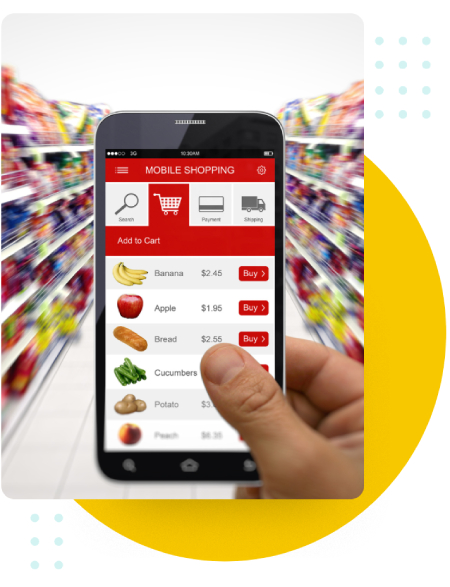
The rise in eCommerce certainly does not mean that physical sales are completely out of the window. If anything, digital and physical sales work hand in hand, which is why omnichannel selling is something so many businesses are working towards integrating is their overall business operations.
At the beginning of this guide, we mentioned that 3PLs have an extra burden on them when it comes to accommodating eCommerce processes. This is because many of the customers 3PLs get will have an eCommerce-based business model, and hence they will need help with eCommerce logistics. To step up for these customers and provide them with the sort of experience they are looking for, you will have to not only familiarise yourself with the eCommerce space, but also make sure that it is well integrated in the services you offer.
And how can you do exactly that? Well, with the help of eCommerce integrations, of course!
3PL eCommerce integrations are very helpful tools that enable any business, including 3PLs, to streamline their processes in accordance with different eCommerce platforms. With the help of eCommerce integrations, businesses are able to take advantage of the functionalities offered by eCommerce platforms, as well as connect these features with the back end activities of their business such as warehousing, inventory management, financial management, and shipment.
In this section, we will look at eCommerce integrations in depth and see what they are all about, and how you can use them perfectly in order to ensure that the bring benefits to the table for your business.
First things first, what are 3PL eCommerce integrations?
In order to get to the bottom of this, let’s breakdown the definition of eCommerce integrations into two sections: eCommerce and integrations. We already know that eCommerce is the practice of buying and selling goods online.
On the other hand, integration in this area refers to data integration. By way of integration, you can combine data present in different sources and centralise it in a way that is beneficial for you in more than one area. Essentially, integration is the process which unifies data from all around the assets of your business and allows you to access it in one single place, without a hassle.
eCommerce integrations, including 3PL eCommerce integrations, are then the coordination between the eCommerce platform of a business and their back-end systems such as a WMS, WRP, or CRM system. Essentially, an eCommerce integration allows businesses to form a bidirectional flow of information between the front-end and back end of their business, and hence allows them to enhance their services to a great extent, without having to enter data into different systems.
So, for example, using an inventory management system with an eCommerce integration will allow a business to not only keep count of their inventory, but also update it automatically as the business makes more sales on the eCommerce platform, without having to tackle different sites at the same time. Needless to say, eCommerce integrations add a much needed layer of efficiency and automation that the eCommerce space is navigated by businesses, and hence becomes a crucial component of the business.
So, 3PL eCommerce integrations in particular help 3PLs bridge the gap between their logistics and the eCommerce, thus providing a much more advanced fulfilment experience on the behalf of their customers.
Although 3PL eCommerce integrations are an important part of your success as a 3PL, there are certain challenges you need to keep in mind, especially if you are looking to make these integrations an integral part of your business. The challenges you need to understand and tackle simultaneously are as follows:
To be fair, 3PL eCommerce integrations are not based on rocket science, so they are not hard to understand. However, most times, companies still fail to understand the basic requirements behind setting up eCommerce integrations, which turns out to be a major problem and may even hinder them from beginning on the right foot.
When your IT stakeholders themselves are unsure about what steps to take to make eCommerce integrations work properly, it can be problematic adding them to the digital ecosystem you have for your business. This can also lead to the process becoming overly problematic, and migrating data from one data source to the other may seem like an overwhelming, impossible feat.
However, you must remember that nothing is impossible! If you take the time to internally align your team with the processes of eCommerce integration and make sure that they understand all the basic requirements needed to integrate different data sources, this challenge is actually very trivial and can be easily overcome.


If you are planning to integrate your processes with the eCommerce space when you have outdated systems in the back-end, you are setting yourself up for serious disaster! Relying on legacy and outdated technology is a blunder, because it will definitely make you lose sales and miss orders. This is because outdated systems are unable to support end-to-end integration like modern systems, and they will cause bottlenecks in your fulfilment process.
Not only that, but outdated systems are also hard to work with. Considering the sheer amount of orders eCommerce businesses tend to get every single day, it is obvious that an outdated system will not be able to keep up with the load and will end up leaving you with more problems than solutions.
The reason that this proves to be such a challenge is that when you have relied on a legacy system for so long, even when it becomes outdated, it is very hard for an organisation to transition to a different system. However, for the sake of using 3PL eCommerce integrations and pushing your business forward, it becomes a responsibility for you to make that choice and leave your outdated systems behind.
When we talk about eCommerce selling, it is important to remember that we are not talking about just one or two platforms – there are hundreds of platforms that the business can choose to use as a sales channel. Whether it’s your own online shop, an eCommerce marketplace like Amazon, or a platform like Instagram where you indulge in social selling, it all falls within the ambit of eCommerce, and preferably should be easy for you to streamline with the help of 3PL eCommerce integrations.
However, it can be hard to use eCommerce integrations for so many different platforms, and that too simultaneously. This will be especially true for small businesses that don’t have a lot of resources to work with.
Not only that, but businesses will also have to strike a balance between their eCommerce activity and other, more traditional sales channels such as mail order catalogue sales and brick and mortar commerce.
Implementing 3PL eCommerce integrations is good – but if it takes away your focus from other forms of sales channels and sales activity, then you will have to rethink your strategy as it could have a detrimental impact on your business.
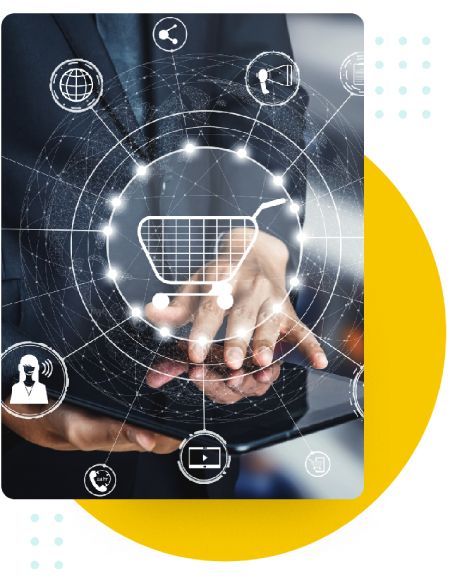

Sometimes, 3PL eCommerce integrations and integrations in general can be a little costly to set up. Unless you are investing in multi-functional systems that offer you a plethora of integrations without you having to code them yourself, you will need expert knowledge and help setting the whole thing up.
Needless to say, this will increase the overall costs needed – you will have to factor in the cost of recruiting IT experts who can help you with this, the things they will need to execute the integrations, and the eventual maintenance and upkeep of the 3PL eCommerce integrations.
However, if you do have a system that only requires for you to simply connect your eCommerce platform with back end support such as for warehousing and inventory, it will be easier for you to benefit from eCommerce integrations without having to spend a lot of resources and effort on the process of setting them up.
So, these are the challenges you need to look out for when it comes to incorporating 3PL eCommerce integrations in your processes. None of these should overwhelm you, since the good thing is that they can be easily overcome. With just a little bit of research and planning, you can fully streamline the implementation of 3PL eCommerce integrations in your business, and see how they transform your logistics journey from start to finish!
Enter your details to book a demo of the Canary7 WMS, built for 3PLs, and fulfillment houses.
Are you still wondering whether taking the heading of getting 3PL eCommerce integrations for your business is worth it? We get you – after all, in order to future-proof the success of your business, you must only make decisions that actually contribute towards your goals.
The benefits of 3PL eCommerce integrations are listed below, and a read through them is bound to convince you that your business not only needs 3PL eCommerce integrations, but it needs them now!
A minute has sixty seconds, but a minute spent manually entering order-related data into your systems seems to consist of millions of tedious, stretched seconds. To put it simply, there are few things in life more boring and draining than manual data entry. Not only is the process slow, but it also has a negative impact on the overall productivity of your team, and is certainly not the way to go in the 21st century.
With the help of 3PL eCommerce integrations, you can finally say goodbye to manual data entry. 3PL eCommerce integrations simplify the process of order entry by automating it. All you need to do is use the integration to connect your order management system to the eCommerce platform, and everything else will be left to be handled by the Gods of automation and technology, while you can sit back and relax.
This level of automation will bring the necessary amount of efficiency to your business, and will make it considerably easier to process orders quickly, so that you don’t have to risk disappointing your customers. Not only that, automation will also help you take a load off of your team’s shoulders, and ensure that their talents and expertise are not being wasted on a task like data/order entry – something that is better automated and left to 3PL eCommerce integrations.


As a 3PL – in fact, frankly, as any business, accuracy is your best friend. If you don’t take steps to ensure accuracy at the very basis of your business processes, you are essentially setting your business up for downfall. You must consider that accuracy is one of the most powerful tools when it comes to shaping and reshaping your logistics journey, and hence should be one of your top priorities. However, if you don’t centralise all your necessary data with the help of eCommerce 3PL integrations, there is a very real chance that you will not be able to achieve the level of accuracy required to solidify the foundation of your business.
3PL eCommerce integrations can help you not only bring accuracy to the centre of your business, but also ensure that all the decisions you make concerning your business are formed on the basis of accurate information. This will also involve ensuring that your inventory levels are accurately maintained, as well as many other elements that can contribute to a smoother fulfilment process for your customers.
Errors and mistakes are a part of the 3PL business, and there is no way that you can avoid them completely. However, with the help of 3PL eCommerce integrations and the automation and accuracy they bring to the table, what you can do is reduce the prospect of errors and mistakes and ensure that you, as a business, don’t have to deal with unnecessary hiccups.
Making the right decisions for your business is an important part of ensuring that it is moving in the right direction. However, “right” decisions can only be made if you are fully aware of what is actually going on in your business, and are informed with all the necessary updates you need from your eCommerce platform. If you fail to get these updates, you can be caught completely unaware of problems, which will have an adverse impact on your 3PL operations.
The solution, again, lies with 3PL eCommerce integrations. 3PL eCommerce integrations not only centralise all your data, but also make sure that you can keep an eye on your operations in every area without having to divide your time between your eCommerce platform and the back end operations. This will allow you to identify problems early on, and make sure they don’t become bigger and transform into bigger problems that cause bottlenecks.
Staying updated with your operations on every end will make it easier for you to approach your business with an informed approach. You will know exactly which areas to focus on, and which areas to improve. This will help you save time, effort, and resources in more than one way and is a great opportunity for businesses that are struggling to change the way they run things. All thanks to 3PL eCommerce integrations, you can now run your eCommerce platform alongside everything else you need to take care of to ensure its success.


You need to keep your eCommerce platform up-to-date – whether it is pricing updates or changes in product information, everything needs to be sorted and that too in a timely manner. This is important because you don’t want to misinform your customer. Even if you do so accidentally, it can cause a dent in your reputation and make your customer not want to do business with you in the future!
3PL eCommerce integrations have this problem sorted too. You can make price changes and update product information at the speed of lightning. Considering you are using just one system to handle your operations, you can do things much quicker, which makes it easier as well. It also becomes more convenient for you to ensure that your eCommerce platform is automatically well-aligned with the back-end operations, so much so that you don’t have to make the necessary updates manually.
3PL eCommerce integrations are a great time-saving technique. If you are a 3PL business that values time and want to make decisions that help you beyond space and time for your business that help you speed up your order processing as a whole, then 3PL eCommerce integrations will help you bring efficiency to your eCommerce space and help you establish yourself a brand that does things on time, and does them good.
Expanding your eCommerce business is probably your number one goal. With expansion of your operations comes more customers, more sales, more money – but unfortunately, also more responsibility and a larger space for things to go wrong for you. However, with the help of 3PL eCommerce integrations, you can actually expand your business without having to worry about any of that.
3PL eCommerce integrations allow you with more space to take on responsibilities, and do the things your business requires when it comes to expansion. 3PL eCommerce integrations will let you deal with more customers without having to put in more effort, and hence make it more feasible for you to expand your services.
Because they centralise everything, 3PL eCommerce integrations create a connection between different areas of your business, making the foundation of it stronger and much more likely to help your business expand in the right way. In addition, by helping you save time, they also enable you to work in the direction needed to make your business grow and flourish.

All in all, 3PL eCommerce integrations are the perfect way to help your business grow – they make your processes more efficient, productive, and customer-centred, which also makes them the right investment for 3PL businesses that are looking to truly change the industry.
Now that we have discussed why exactly your 3PL business needs eCommerce integrations, let’s turn to the kind of eCommerce integrations you can actually benefit from:
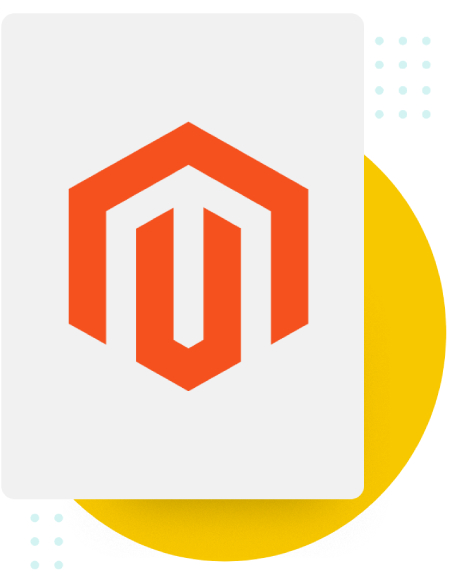
Magento is one of the most popular eCommerce platforms there is. When venturing into the eCommerce space, many businesses choose Magento to set up their shop thanks to the features, functionalities, and convenience it offers. It helps businesses save a lot of time and effort when it comes to setting up an eCommerce project, and is a prominent contender due to that.
As a 3PL, you should have a Magento integration since many of your customers may have their ventures set up on Magento. This will help you handle any logistics that comes from Magento, and make your job considerably easier. It is one of the most coveted 3PL eCommerce integrations, and hence should be on your radar.
WooCommerce is another platform that is a fan-favourite when it comes to setting up an eCommerce business. There are many advantages that WooCommerce introduces business-owners to. For starters, it is open source and easy to use for non-tech entrepreneurs. It is also easily customisable, has powerful analytics, and can be used to sell basically any type of products.
This makes WooCommerce a wonderful addition to your 3PL operations. Many businesses you work with will have their shop on WooCommerce, so it is important for you to have systems that support integration with WooCommerce. This will help you provide services that align with WooCommerce as a platform.


Yet another fan-favourite, BigCommerce hosts a very large chunk of eCommerce websites all over the world. This is mainly because it is easy to use, and provides users with a lot of flexibility to do a lot of things necessary to kick-off your eCommerce store. Most importantly, it has the best AI design and as such, offers easy and convenient navigation, which a lot of people prefer.
As a 3PL, you should have a BigCommerce integration if you want to satisfy customers that have their products on this platform. Integrating your order management system, in particular, with a platform like BigCommerce will help you bring more efficiency to the table and considerably fasten the eCommerce processes you are working towards.
Everyone has heard of Shopify – it is one of the most popular eCommerce platforms, and has many shops from different kinds of retailers. It’s easy to use and allows businesses to tap into a very large customer base. Not only that, but you can customize your Shopify experience from start to finish, which is why it is the go-to for many business-owners.
A system that offers a 3PL eCommerce integration for Shopify is absolutely crucial, as it will help you smoothen the order processes you get on any orders on Shopify. The more productively you deal with these orders and the faster you process them would enable you to satisfy your customers much more effectively.


OpenCart is known for its multi-user management, affiliate system, and multi-store features. It is an eCommerce platform that allows businesses to bring that extra flair to their eCommerce experience as a whole, and therefore make it easier for users to make their shop stand out.
Having an OpenCart 3PL eCommerce integration will allow you to deal with business-owners that run their business on this platform. You can offer them to enhance their stores, which is ultimately all that a business seeking 3PL services needs.
When talking about 3PL eCommerce integrations, you cannot possibly leave PrestaShop out of the discussion. PrestaShop is an easy eCommerce platform that offers its users flexibility. More importantly, it enables you to manage back-end operations seamlessly, and will also let you develop an IP-based eCommerce store if you want to.
So, if you are looking to take as many customers on board as possible for your 3PL business, you should also look for a system that allows you to integrate with PrestaShop, as it will help you expand your customer base to a great extent. It will also help you prove to your customers that you have expertise in multiple areas, and will bring your credibility.


CS-Cart is another eCommerce platform that should be on your radar. Although it is slightly lesser known than some of its counterparts mentioned on this list, it is still a pretty strong platform and hosts many eCommerce shops. It has 50+ payment systems, storefront customisation, and even tax management!
Who knows, maybe you get a customer who is a retailer on CS-Cart. It is better to be prepared and get a 3PL eCommerce integration that connects you to CS-Cart, and can help you take care of all CS-Cart related activities in the most efficient manner.
When talking about eCommerce, who can forget Amazon? Although Amazon is a marketplace, most of the eCommerce activity that goes on in the world is linked to Amazon in one way or the other. Hence, it would be wise for you to consider Amazon as well when looking into 3PL eCommerce integrations or marketplace integrations.
A 3PL eCommerce integration that allows you to connect to Amazon ensures that you can handle a large volume of orders, and make the logistic processes that flow from it as easy as a piece of cake! You can impress any of your customers that deal with Amazon with just a few clicks.

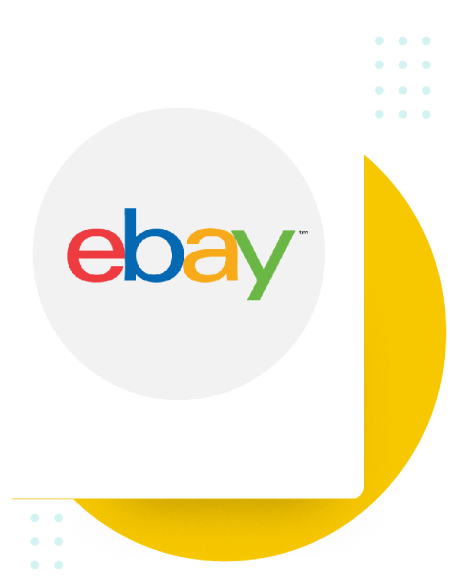
Like Amazon, eBay is also important. eBay allows businesses to tap into a huge customer base, and makes it easier for them to sell products. For this reason, it is more than obvious that many of the businesses that look for your help with their logistics will have their shop set up on eBay.
To ensure that you don’t let these customers go disappointed, it is important that you have 3PL eCommerce integrations that help you tackle eBay orders. Once you do this, you can prove your credibility in the eCommerce space in general.
Etsy hosts thousands of shops from independent creators. These people need the most help with their inventory and logistics, which is why it is reasonable to expect that some of your 3PL customers will be Etsy shop owners.
If you are planning to serve them just as well, you will have to invest in 3PL eCommerce integrations that help you deal with Etsy sales, orders, and inventory, Once you do that, it will become easier for you to get more customers on board.
As you may be able to tell, the more 3PL eCommerce integrations you can manage to involve in your operations, the better. Essentially, you want to deal with not only a diverse range of customers, but also make sure that anyone who is following a multi-channel sales model can also be comfortably accommodated by you.
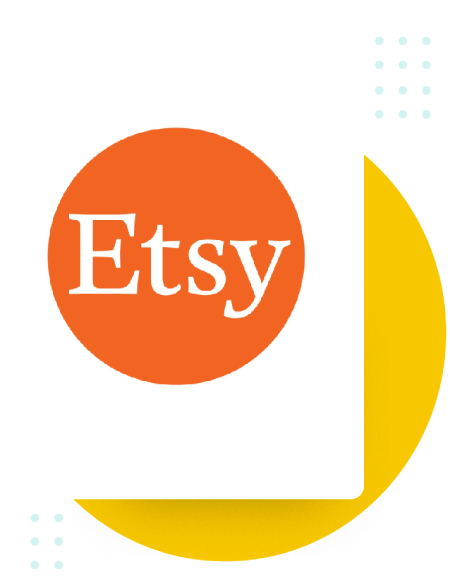
3PL eCommerce integrations are important – which is why Canary7 offers them to you. Each of our software solutions can be integrated with the eCommerce platform of your choice. So, whether it is warehouse management, inventory management, or order management – you can execute all your back end functions in accordance with the requirements of your eCommerce platform and centralise all your data holistically.
Interested to learn more? Head to our website and find out all about our 3PL eCommerce integrations, as well as all the other integrations we offer!
Enter your details to book a demo of the Canary7 WMS, built for 3PLs, fulfillment houses, and online retailers.
You can see how this popup was set up in our step-by-step guide: https://wppopupmaker.com/guides/auto-opening-announcement-popups/
You can see how this popup was set up in our step-by-step guide: https://wppopupmaker.com/guides/auto-opening-announcement-popups/